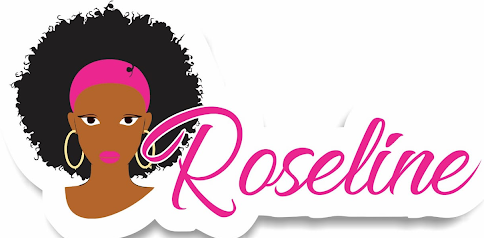Fairytales contribute to the perpetuation of gender inequality. These stories educate youngsters to perceive the world through a distorted lens by promoting hazardous preconceptions. Have you ever noticed how many fairytales sound the same? Mistreatment, helplessness, or abandonment of a young, beautiful, naive girl. She is confronted with numerous obstacles that she cannot overcome on her own. She desires freedom, so she waits for a prince to come to her rescue. Her patience is rewarded when, after a lengthy wait, a young, attractive, accomplished, and determined man appears and saves the day. Following that, he marries her.
Many people have spoken with believing these stories are harmless since they finish nicely, but they aren’t. They reinforce conventional female (and male) characteristics and provide subliminal messages that can influence children’s perceptions of life, love, and marriage from an early age. It’s impossible to change a child’s mentality once they have grown up with these erroneous views on life when they’re older and their thoughts are set in stone.
Here are some of the messages that these fairy tales convey:
To be worthy of love, you must conform to a set of ludicrous beauty standards. It is worth noting that the major characters are constantly described as handsome and beautiful. People of a given race, physical type, and hair color are frequently depicted in these fairy tales. This may lead girls to believe that they must meet these criteria in order to be worthy of love.
Children learn through fairytales that marriage is a woman’s ultimate aim and the answer to all of her difficulties. It’s no surprise that many of them end with the prince rescuing her and marrying her. But life isn’t always like that, and marriage isn’t always the answer. Marriage should also not be viewed as a reward for a good deed or service given.
To be desirable or deserving of a woman’s affections, men must be physically strong, dashing, bold, and fearless all at the same time. Men are put under needless stress as a result of this. Individual variations, age, strength, interests, upbringing, past experiences, and so on are ignored in these fairytales by categorizing males as rescues and women as the rescued.
Enlightened parents are keeping their children away from fairytales, especially film and animation adaptations of these stories, as a result of these gendered themes. They’ve made the decision to raise their children with stories that celebrate our uniqueness, equality, and diversity. It doesn’t have to end there, though. These fairytales have the potential to be changed. Men and women should be depicted without supporting gender stereotypes, rather than depicting a weak and helpless female who is always in need of saving and a strong and powerful man who is always defending and rescuing the downtrodden. These fairy tales are an element of young children’s acculturation, and the patriarchy depicted in them harms the young children that watch them. There has been a call to deconstruct the binary structure depicted in these fairy tales.


Kudos to you, keep the flag flying higher and higher.
Thank you
These stories somehow brought me to the realization that adults abuse children without any consequence. Children are made to see abuse as a normal thing that should be endured, while waiting for someone to speak up for them.
Furthermore, it reinforces the idea that women don’t like women. Cinderella’s step mother and half-sisters were her enemies, and her saviour was a man, instilling the idea that women will be at the mercy of the man who decides to be kind enough to marry them. If Cinderella was a man, who would come to his rescue?
It also brings the fault of the society into light, people minding their business, not wanting to speak up for the oppressed, these oppressed are mostly women and children. They try to shut the few ones up by telling them that they were only overreacting, or that the culture is perfect and doesn’t need a shift.
Nobody was born sexist, the society did not just turn into this. We are all results of our upbringing and experiences, and our society, a larger result. If it is faulty, let there be a shift, by bringing the children up differently (the tales that they are exposed to should be different) and we will see a shift in the society as well. We are the society, we are the world.
GENDERED MESSAGES IN FAIRY TALES BY ROSELINE ADEWUYI
A few years ago, I realized that growing up as a young impressionable girl, I suffered from the Cinderella complex. Put simply, the Cinderella complex is the fear of being responsible for ones own self and a desire to be taken care of by someone else other than oneself. Although I was not aware at the time that what I felt and strongly believed in even had a name, along the line, I was able to recognize how detrimental it was and still is to the overall development of the girl child. Recognizing that, I was able to break free from it by consciously working to rid myself of those beliefs. As someone who thoroughly understands what it means to have ones mindset shaped based off of fairy tale stories which always promises a happily ever after, reading this blog post resonated deeply with me and that is what sparked my desire to not only share my experience but also my thoughts on how harmful and counterproductive gendered messages in fairy tales truly are.
Based on the many fairy tales I read as a young child, I developed the erroneous belief that a girl lacks the capacity to take charge of her own life and that the answer to all her problems and woes was a prince charming whom she would have to wait for meekly. And thus, enforcing the belief that marriage is a woman’s ultimate life goal and answer to all problems. Fairy tales such as Cinderella, Sleeping Beauty, Snow White and The Seven Dwarfs all drive a common message which empowers gender stereotypes. Gender stereotypes such as associating girls/women with weakness, lack of ability to make sound decisions or take on responsibility, frailty, helplessness in the face of all adversity etc. Unfortunately, young boys also watch these fairy tales and being young, their minds are easily engineered to soak up all these gender stereotypes as seen portrayed by their favourite fairy tale characters. These in turn then informs their mindsets as adults.
It hardly comes as shock that the Cinderella complex derives its name from one of the most beloved of fairy tales. This only goes to assert how such messages passed through these fairy tales promote and help enforce gender stereotypes which are neither beneficial to the individual not the society. It is the 21st century and it is still a world where women fight to be heard and seen. Through awareness and focused education, it is possible to unlearn and relearn some of the gendered messages gained through fairy tales.
#Roseblogat4
GENDERED MESSAGES IN FAIRY TALES BY ROSELINE ADEWUYI
Growing up, I came to be an avid reader. I’d read everything readable and this made my parents buy me lots of books but I never came across books like Cinderella until I started reading romance novels in secondary school.
With romance novels, I noticed a similar pattern of women being weak, naive and helpless, waiting for their bold, rich, arrogant and strong male lover to come to their aid. Their first encounter usually starts with the guy disrespecting and sometimes even humiliating her before he starts treating her nice and they end up together. Some of the men don’t even end up treating the lady well but for the fact that she somehow knows he loves her, she stays with him. They consistently sold the idea that open hatred is hidden love; that is to say that when a man loves you, he may treat you badly especially when he is not supposed to “show emotions.”
I didn’t fully understand how dangerous such stories were until I got bored of the repetitive patterns in their storyline and decided to start reading other genre of books. It was only after reading books by people like Buchi Emecheta, Sidney Sheldon, Chimamanda Ngozi Adichie that I understood the gravity of those narratives.
Braced with this understanding, I decided to work on my mentality and rid myself of such notions. But this wasn’t an easy fit to achieve considering the fact that I’m in the engineering field which is largely dominated by the male gender. The male counterparts would want you to rely on them but when you don’t succumb to societal constructs of what you should be/do, they term you ambitious. Some even go as far as telling me I may not find a husband because I tend to do everything by myself, and call me career woman in a bid to get me offended.
Just recently I decided to check out new romance novels and I must confess that a lot has changed. From having weak and dependent women to having intelligent, strong, fierce and independent women who not only falls in love with a guy but also knows what she wants out of the relationship. The movie industries are also changing even though more work needs to be done.
I believe with more balanced stories and movies, the narrative will change because an eagle who has been told it’s a chicken and can’t fly too high may never know what it’s capable of unless it’s told otherwise.
#Roseblogat4
I’ve had three submissions already but each time, the comment comes out wrongly. From not paragraphing it to clustering my title and the body of the comment. I hope I’ll be pardoned for this.
It is fine
This particular article strongly resonates with me, especially as a child safety advocate working to empower young people against the strong impact of gender-based-violence acts.
As a young woman and from my interactions with hundreds of young girls, My biggest concern has been on the MINDSET that Entertainment and Media has imbibed in young minds , especially fairytale movies and myths. Young People begin to “worship” ideologies like marriage and seeing it as a way to escape their struggles including sexual abuse
I am personally committed to driving the media as a tool to retell our stories as African Girls but I totally agree with you that It’s pertinent that all stakeholders including parents, advocates, writers, storytellers change the narrative and intentionally portray the right mindset to young people concerning themselves and gender roles